Witchcraft possesses some deep and dark historical roots that make it a fascinating area of endless study. While men were also targeted during the trials, such as with Giles Corey who was pressed to death by large stones[1], the word “witch” itself is more often associated with women and carries quite a few connotations. So while we have gone from witch hysteria to the concept of being a witch as something more trendy, (and I mean hey, I enjoy listening to my Queen Stevie Nicks and am happy to blast “Sisters of the Moon” anytime of the year while twirling around in a black shawl, so I understand the appeal), but at the same time, the actual study of witchcraft has become deeply commercialized by superficial brands and consumers.
Earlier this year, perfume-brand Pinrose announced they were going to sell a “Starter Witch Kit” through Sephora stores with a retail price of $42. The kit was set to include

sage, rose quartz crystal, and tarot cards, according to altpress.com[2]. The backlash from those citing witchcraft as a real religion and not a gimmick to make teens feel on trend was loud enough to get the kit pulled from being manufactured. I was kind of fascinated by this whole ordeal because it reminded me of how, over these many years, we have gone from witch hysteria, associating it with the devil, and of course murdering real women over false accusations, to trying to package it into something pretty and aim it at target audiences for entertainment purposes. I don’t identify as a witch religiously, but I can certainly identify with the rage that comes from being damned over something until it suddenly becomes fashionable.
One of the reasons why I am interested in the whole concept of witchcraft is because of the power that one word holds. When I hear the word, I think of a woman who is not afraid to use her identity and power, who is in touch with her individual spirituality, and who, at the end of the day, does not care if her power scares those who toss the word around like an insult. Okay, in that regard maybe I do identify with some aspects of being a witchy woman, but I know the word has different definitions, practices, and aspects that make it truly hard to logistically define. But then again, I think women are sick of being defined in static ways, which is one of the reasons why I roll my eyes when I hear the term “strong, female character” in the writing world. Well yeah, all women are strong. I don’t need to be told that. Willow from Buffy the Vampire Slayer was an

incredibly strong witch, but she was also wicked smart, a loyal friend, and experienced some incredible growth in terms of her identity, sexuality, and overall powers. I imagine she’d easily flay open anyone who came to try and execute her for witchcraft. While her powers at one point came from some dark places, she never sold her soul to the devil, which is what many believed witches did during the times of the trials and witch hunts.
Witch hunters primarily focused on nonsensical confessions and often linked a woman accused of witchcraft as being someone who had sexual relations to the devil. Take the story of Märet Jonsdotter, for example, who was accused of having intercourse with the devil, riding a man as a horse into a legendary meadow, and attending witches’ Sabbaths there. In 17th century Sweden, she was the first to be tried during their witch hunt, also known as “The Great Noise.” [3] At first, she denied the accusations and was not able to be executed until the laws changed as witch hysteria continued to rise. The laws in Sweden changed in regard to confession, and Jonsdotter was accused of witchcraft, sentenced to death, decapitated, and then burned at the stake. Unfortunately, much of this happened after one of Jonsdotter’s suitors was attacked by another suitor, so I get the feeling her death was more due to the patriarchy as opposed to casting curses in the meadow. [4] This whole concept of women being synonymous with the devil throughout history and religion is something I’ve embraced as being delicious and hilarious because in my mind, it all comes down to people fearing women who use their power to embrace their ambitions and perhaps choose to live an unconventional life that does not appease societal norms.
Witch is power, not a commercialized trend or makeup kit, and women should be reclaiming the word and taking back how we define it, just as we have done with many other slurs and insults. We get called these words and many others, usually for scaring those who don’t want women to be in charge, and frankly, those people should be scared. If anything, I believe in the power of rhetoric and words, so taking back what others use as an insult and evolving it into a meaning of empowerment for women is true magic in my eyes.
- http://historyofmassachusetts.org/the-curse-of-giles-corey/
- https://www.altpress.com/news/sephora-pulls-pinrose-starter-witch-kit/
- https://listverse.com/2012/11/10/top-10-notorious-witches/
- https://www.revolvy.com/page/Märet-Jonsdotter

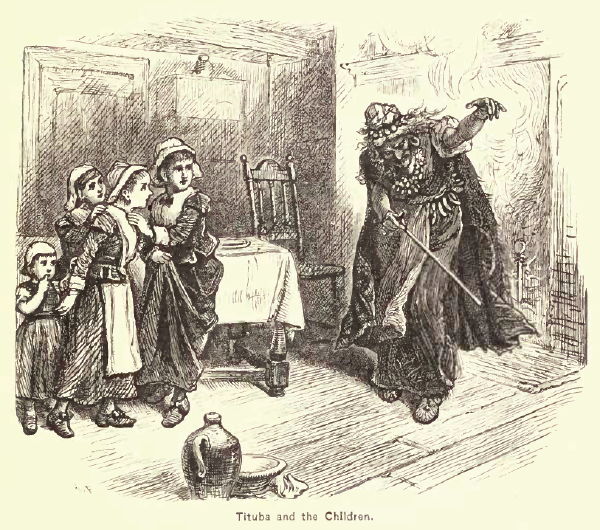

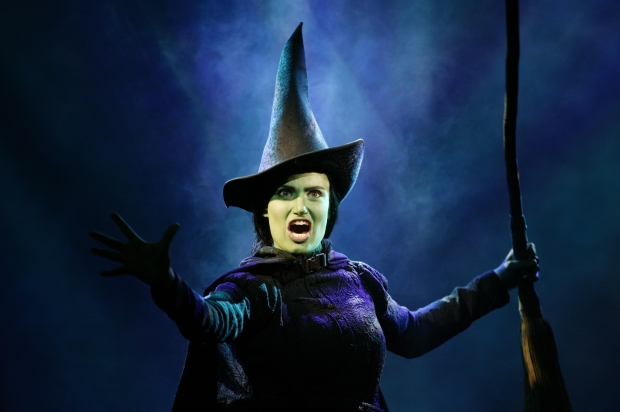



 Counter Reformation. For a society dominated by the rules of Catholic Christianity for centuries, the threat of Protestantism was just as threatening to the social structure as it was the spiritual. Witches in Catholic regions were accused of fouling the Eucharist or using it for spells. Protestant regions were much more susceptible to this phenomenon. This may be due to the intense need to differentiate themselves from the Catholic Church as beacons of righteousness and in doing so, validate their emerging social structures. This opened the possibility for many ideas and it is no wonder that female agency was particularly suppressed during this transition.
Counter Reformation. For a society dominated by the rules of Catholic Christianity for centuries, the threat of Protestantism was just as threatening to the social structure as it was the spiritual. Witches in Catholic regions were accused of fouling the Eucharist or using it for spells. Protestant regions were much more susceptible to this phenomenon. This may be due to the intense need to differentiate themselves from the Catholic Church as beacons of righteousness and in doing so, validate their emerging social structures. This opened the possibility for many ideas and it is no wonder that female agency was particularly suppressed during this transition.

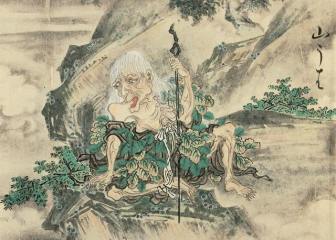

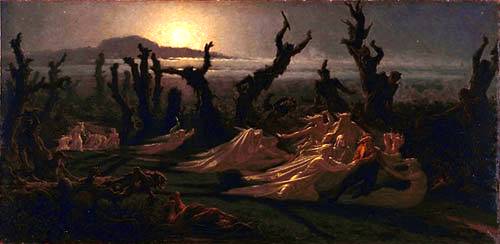
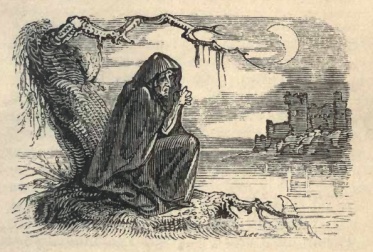 ailing family member. Through the window comes the sound of a woman in the grips of deepest grief. She is unrestrained in her keening, raw with sorrow. It is not merely the mysterious sounds that fill you with fear, but also the knowledge that in the day that follows, a member of your household will pass from the world. The source of this wailing is a banshee. She is a fairy, though she is far from what a modern American imagination might summon up at the word: this is no mischievous winged sprite, but rather an omen given a woman’s form.
ailing family member. Through the window comes the sound of a woman in the grips of deepest grief. She is unrestrained in her keening, raw with sorrow. It is not merely the mysterious sounds that fill you with fear, but also the knowledge that in the day that follows, a member of your household will pass from the world. The source of this wailing is a banshee. She is a fairy, though she is far from what a modern American imagination might summon up at the word: this is no mischievous winged sprite, but rather an omen given a woman’s form.
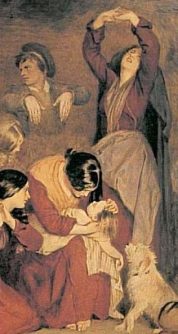 Like the ancient Celtic wife, the banshee too is a liminal being. Banshees usually appear at midnight, the liminal moment between two days, and represent a person’s passage into a sort of pre-death space in which they continue to live but are known to be near death. They also were heard from outside of homes, but never seem to enter them—the inverse of an ordinary woman, who would be strongly associated with hearth and home. Also like the ancient Celtic wife, the banshee has strained but important ties to the line of kinship: certain families were believed to be “followed” by a banshee. To be from a family followed by a banshee may have been a symbol of a certain rank and a point of pride.
Like the ancient Celtic wife, the banshee too is a liminal being. Banshees usually appear at midnight, the liminal moment between two days, and represent a person’s passage into a sort of pre-death space in which they continue to live but are known to be near death. They also were heard from outside of homes, but never seem to enter them—the inverse of an ordinary woman, who would be strongly associated with hearth and home. Also like the ancient Celtic wife, the banshee has strained but important ties to the line of kinship: certain families were believed to be “followed” by a banshee. To be from a family followed by a banshee may have been a symbol of a certain rank and a point of pride.
 pagan movement of modern day), the Bodhi Tree, its very name meaning the awakening or enlightenment of Buddha, and the Tree of Knowledge of the Judaic tradition. In each depiction, there are strong connections to humanity and the human experience. While the divine, or immortal may be connected to the tree, it is often in a human-like capacity that ascends into some type of enlightenment (in the case of monotheism, knowledge that leads to disaster). This can be explained by the idea that the tree is a mirror of humanity itself – ever rooted to the Earth by reaching for something greater, something higher, caught in a state in-between.
pagan movement of modern day), the Bodhi Tree, its very name meaning the awakening or enlightenment of Buddha, and the Tree of Knowledge of the Judaic tradition. In each depiction, there are strong connections to humanity and the human experience. While the divine, or immortal may be connected to the tree, it is often in a human-like capacity that ascends into some type of enlightenment (in the case of monotheism, knowledge that leads to disaster). This can be explained by the idea that the tree is a mirror of humanity itself – ever rooted to the Earth by reaching for something greater, something higher, caught in a state in-between.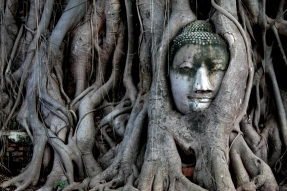 repetitive in Western culture. I’d like to examine these through the lens of the Greek myth of Daphne, the nymph lustfully pursued by Apollo until she is transformed into the laurel tree in order to escape. It is a timely myth to revisit for the modern audience, as many women via the Me Too movement have spoken out against male sexual misconduct, particularly from powerful men. It has spurred not only conversations on the sexual harassment, pressure and assault on women, but questions concerning sex and power dynamics.
repetitive in Western culture. I’d like to examine these through the lens of the Greek myth of Daphne, the nymph lustfully pursued by Apollo until she is transformed into the laurel tree in order to escape. It is a timely myth to revisit for the modern audience, as many women via the Me Too movement have spoken out against male sexual misconduct, particularly from powerful men. It has spurred not only conversations on the sexual harassment, pressure and assault on women, but questions concerning sex and power dynamics. greater, a life-threatening or ruining possibility.
greater, a life-threatening or ruining possibility.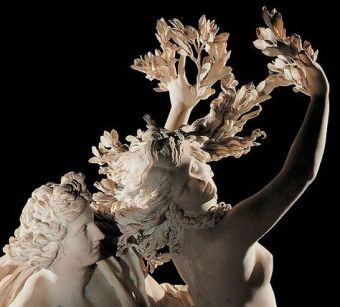 Daphne is described as athletic and when she flees, she gives a difficult pursuit for Apollo. But he is ultimately a god, so he is able to gain ground on her. Despite Daphne’s abilities, she cannot escape Apollo’s will. We could read this as despite female abilities and potential, women cannot escape society’s will.
Daphne is described as athletic and when she flees, she gives a difficult pursuit for Apollo. But he is ultimately a god, so he is able to gain ground on her. Despite Daphne’s abilities, she cannot escape Apollo’s will. We could read this as despite female abilities and potential, women cannot escape society’s will.
 the withdrawal of God’s protection. In Celtic culture, trees, or a grove can serve as a gateway to the realm of the faery, a mysterious world of amazement and entrapment, rife with equal parts wonder and danger. Such transformations and withdrawal from societal cooperation are by nature threatening to that society, but there is a freedom that can be found.
the withdrawal of God’s protection. In Celtic culture, trees, or a grove can serve as a gateway to the realm of the faery, a mysterious world of amazement and entrapment, rife with equal parts wonder and danger. Such transformations and withdrawal from societal cooperation are by nature threatening to that society, but there is a freedom that can be found. I met a lady in the meads,
I met a lady in the meads, warning to men of what could happen if women were allowed such self-direction. Indeed it hints at the very destruction of male power structures, “…pale kings and princes too, pale warriors, death-pale were they all.”
warning to men of what could happen if women were allowed such self-direction. Indeed it hints at the very destruction of male power structures, “…pale kings and princes too, pale warriors, death-pale were they all.”